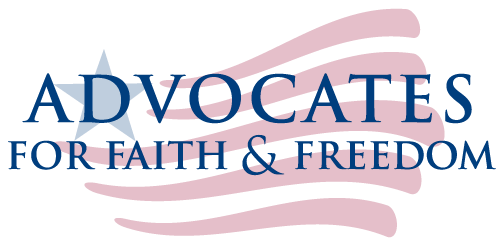Helping Teachers Keep What They Earn: Upholding the Janus Decision
Many of us have bosses who think and vote differently than we do. And in a richly diverse nation like the United States, that’s actually an advantage; it takes all kinds of kinds, after all.
But what if your boss announced that he or she would be garnishing a portion of your paycheck to financially support political causes with which you vehemently disagree? You might have a problem with that! But wait, your boss says — the money being taken from you will actually help you in the long run, though he or she cannot necessarily articulate how. Would that make a difference? Probably not. Nearly all Americans want to control where their money goes — or, at the very least, give it to an organization or person they trust to spend it wisely on their behalf.
Directing where one’s earnings go seems like common sense. For years, however, an entire American industry has disagreed, taking chunks of its participants’ paychecks without their permission and spending it on politically-related issues. If you’re a public employee, it has just been a deal-with-it fact: unions that supposedly represent you will compel you to pay union dues, allowing no say over how they spend those dues, even on controversial topics. This fact applied even if you had opted out of full union membership.
In liberal states like California, this reality translates into conservatives actively funding left-leaning parties they oppose. Take our public school teachers. They have been able to opt out of paying for expressly political activities, but for the past 40 years, laws have forced them to pay “agency fees” to cover collective bargaining. In theory, this practice doesn’t sound terrible, because collective bargaining is supposed to support and protect workers. Yet in reality, it strongly affects local and state budgets, often resulting in higher taxes and budget deficits. Class sizes, length of the school year, tenure — each one is affected, which in turn impacts teachers. Given the relevance to teachers, then, shouldn’t they have a say in the matter?
For too long, our Golden State educators (alongside other public employees) simply haven’t, and their influential unions have held all the power. If a teacher disagreed on any issue of collective bargaining, they still had to fund the group they disagreed with. It was frustrating, unfair and quite frankly un-American.
That is why the lawyers here at Advocates for Faith & Freedom were thrilled when the Supreme Court handed down a momentous decision in Janus v. AFCME last June. The Janus case effectively ended forced union dues for public employees, considering the practice a First Amendment violation. Public employee unions are still able to organize and represent members, but industry non-members cannot be forced to financially support them. Additionally, full dues-paying members would now have the right to terminate their memberships.
Naturally, this freedom-embracing ruling did not sit well with the massive teachers’ unions in California, given how much control they wield over Democrats through gigantic donations. In 2016, for example, national education unions gave more than $166 million to political campaigns, nearly all Democratic. Janus cuts off a serious source of this funding.
Cue the victimhood from teachers’ unions! Supposedly, letting teachers decide where to give their money will strip them “of their freedom to teach,” according to the president of the American Federation of Teachers. Even worse, Randi Weingarten says, the “deprofessionalization” of allowing teachers choice is “killing the soul” of education.
Hence the spate of ongoing post-Janus legislation, especially in California, designed to make it far harder for union members to quit. Even so, Californian public sector union membership numbers have diminished, while union revenue has stayed steady thanks to increased union dues.
If you work a private-sector position, this Supreme Court case and its ramifications may seem irrelevant. But this issue isn’t a single-industry quibble; it’s a foundational value of what it means to work in a free country. Janus reinforces what Advocates for Faith & Freedom (as well as supporters like you!) already know: one should never be forced to support any cause, through words or finances. Just as God never forces our allegiance, neither should our leaders.
Law firms like ours operate on this basic belief, which is why our lawyers are currently representing and advising public employees and teachers—assisting them in the process of leaving their coercive public unions and helping secure their rights to freedom of association. But we are at our strongest when paired with boots-on-the-ground believers like you! Laws can be wonderful, but they are not the ultimate answer. Jesus is!
With great hope,
Nada Higuera, Esq.
P.S. Please pray for and support not only our team, but for true freedom to grow in California—not just at the statehouse, but in homes, schools, churches and workplaces from Imperial Beach to Siskiyou County.

